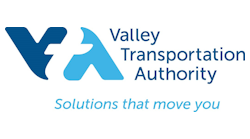CA: VTA Board Unanimously Approves Transportation Sales Tax for November Ballot
At the June 2 meeting, the Santa Clara Valley Transportation Authority (VTA) Board of Directors unanimously adopted the framework and funding amounts for a ½-cent 30-year sales tax measure on the November 8, 2016 ballot to help fund transportation priorities.
Tonight’s vote is the culmination of VTA’s Envision Silicon Valley effort – an extensive 18-month public outreach process that began in fall 2014 that gathered input and suggestions on transportation needs from transportation professionals, stakeholder groups and community organizations as well as the public throughout the county.
“Never before has there been such an extensive and inclusive public outreach effort when it comes to putting a potential transportation sales tax before the voters,” shared Cindy Chavez, VTA board chair and Santa Clara County Supervisor. “The result of this effort is a package of transportation improvements that any Santa Clara County resident or commuter can identify with, benefit from, and hopefully get behind on November 8th.”
She stated that stakeholders from various interest groups and committees developed goals and evaluation criteria that best address the needs and shared vision of the entire community. “The result of this effort is a package of transportation improvements that any Santa Clara County resident or commuter can identify with, benefit from, and hopefully get behind on November 8th.”
The list of categories and transportation projects that best improve mobility in Santa Clara County were approved as follows:
- BART Phase II at $1.5 billiion
- Bicycle/Pedestrian Program at $250 million
- Caltrain Capacity Improvements at $300 million
- Caltrain Grade Separations at $700 million
- County Expressways at $750 million
- Highway Interchanges at $750 million
- Local Streets and Roads at $1.2 billion
- SR 85 Corridor at $350 million
- Transit Operations at $500 million
Transportation projects, especially larger projects, are typically built using a variety of funding sources. One significant advantage of a countywide sales tax is that it provides a local revenue source for obtaining additional funds through regional, state and federal fund sources.
The measure in November will require a 2/3 voter majority to pass.



